Hey y’all,
Last weekend I spent a day at my mom’s house sifting through my childhood. Among the artifacts I saved or discarded from the first two decades of my life: a hundred pounds of notebooks and binders from high school, random junk like chem lab aprons I never returned, letters from former girlfriends, bank statements, rental agreements, brochures, ticket stubs, wristbands, notes, old sketchbooks, a stack of song lyrics and guitar tablature several inches thick, tuition statements, computer manuals, hint books, baseball cards, floppy disks, and best of all, toys. A glorious batch of toys from my youth, including He-Man, Ghostbusters, Robo Cop, G.I. Joes, and even one lone Teenage Mutant Ninja Turtle.
I had been thinking about these toys ever since I read an advance copy of Box Brown’s comic book, The He-Man Effect: How American Toymakers Sold You Your Childhood. (It comes out in July, and is available for pre-order. I think it’s his best one yet.)
A major theme Brown writes and draws about is the power of nostalgia. Memories of the past can provide us great feelings of comfort, safety, and meaning, but they can mess with our vision, by both cropping and distorting the way things really happened and blinding us to what’s in front of our eyes in the present. Nostalgia can also be manipulated and used to sell things to us — everything from tickets to Disneyland to presidential tickets to fascism.
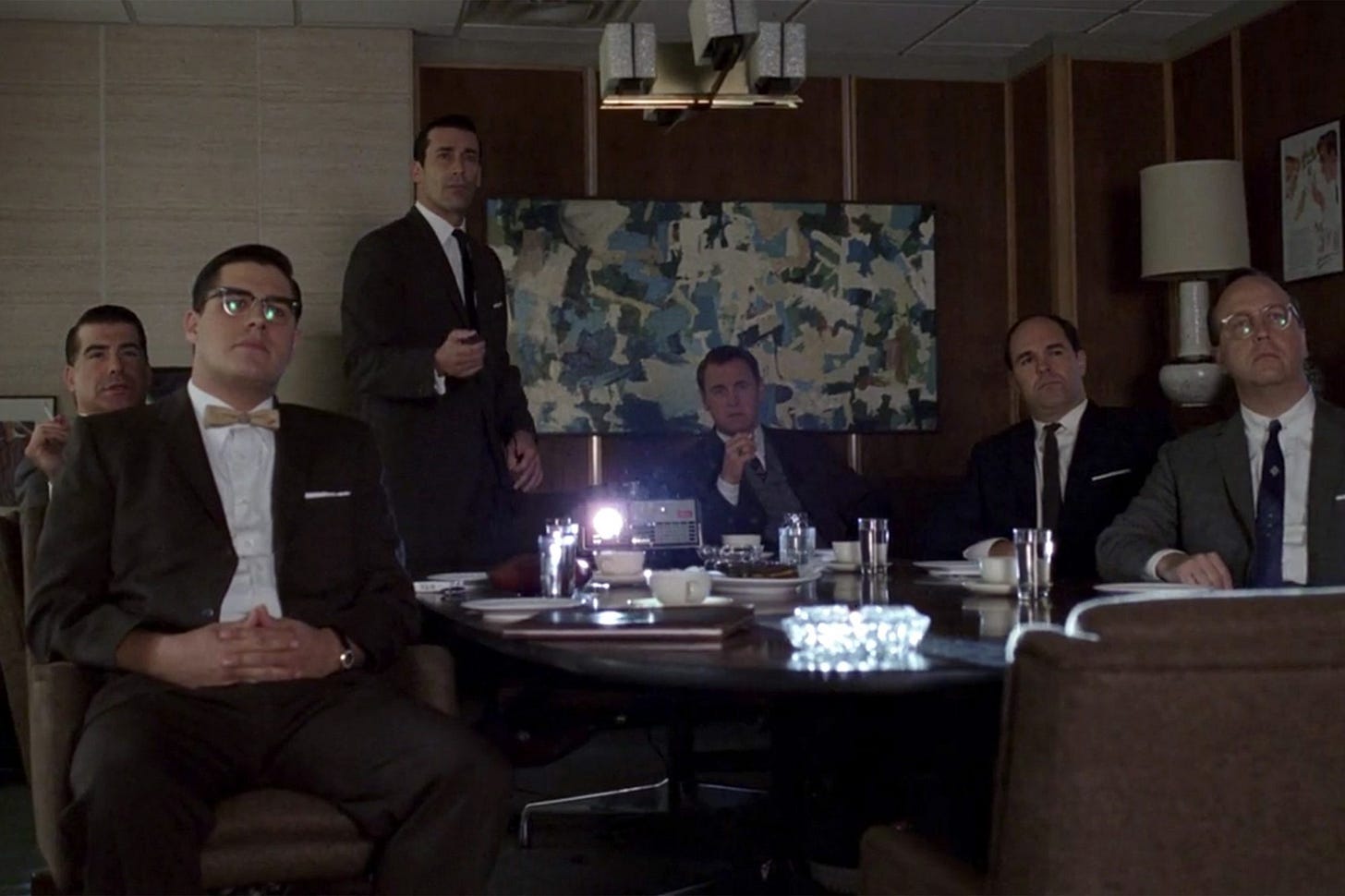
One of the most powerful depictions of this idea comes at the end of the first season of Mad Men, when ad man Don Draper delivers a brilliant pitch to Kodak executives for a new wheel-like slide projector they’ve developed.
Don starts off talking about a former mentor of his, a Greek copywriter named Teddy, who taught him that the most important idea in advertising is “new” — you create an itch for something and you satisfy it with your product. But, Don says, Teddy also talked about something deeper: “Nostalgia. It’s delicate, but potent.”
Don then dims the lights, starts the projector, and clicks through happy slides from his own family life. He continues:
Teddy told me that in Greek nostalgia literally means ‘the pain from an old wound.’ It’s a twinge in your heart far more powerful than memory alone. This device isn’t a spaceship, it’s a time machine. It goes backwards, and forwards … it takes us to a place where we ache to go again. It’s not called The Wheel, it’s called The Carousel. It lets us travel the way a child travels – around and around, and back home again, to a place where we know we are loved.”
In his brilliant piece about how Mad Men was a show about nostalgia, Andrew Potter pointed out that the subtext gives this scene its real power. ”Don’s carousel pitch is selling a family that doesn’t exist – his character as a drunk, serial philanderer and bad father is already well established.” The scene does what Mad Men on the whole does: it both conjures nostalgia in us by beautifully and painstakingly portraying the past, but it also has a “more pressing agenda to reveal this nostalgia as, essentially, a fraud.”
But is nostalgia always a fraud?
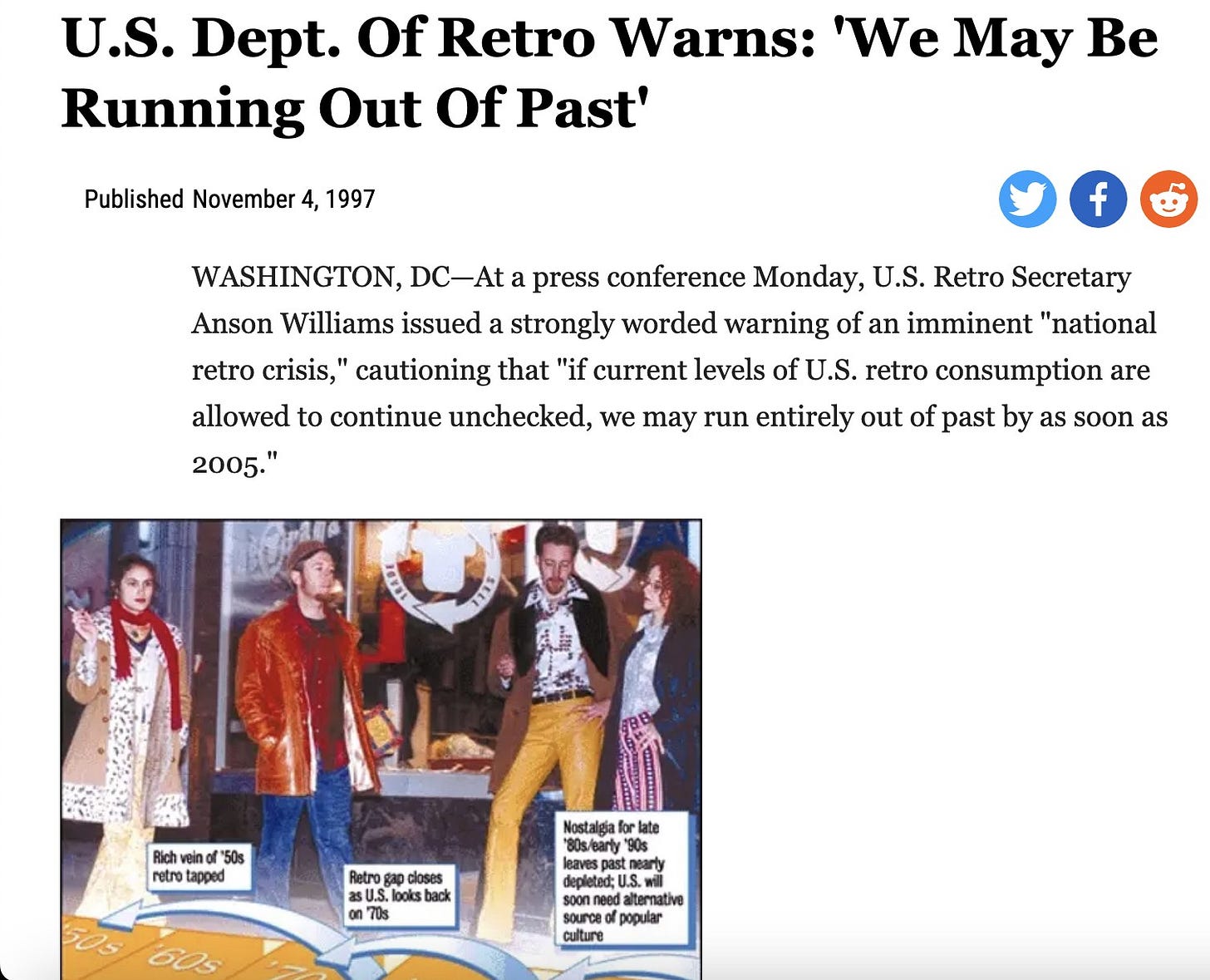
In The Future of Nostalgia, Svetlana Boym plays with the word’s roots — nostos, meaning return or homecoming, and algia, meaning pain or longing — echoing Don Draper’s distinction between a spaceship and a time machine:
At first glance, nostalgia is a longing for a place, but actually it is a yearning for a different time—the time of our childhood, the slower rhythms of our dreams. In a broader sense, nostalgia is rebellion against the modern idea of time, the time of history and progress. The nostalgic desires to obliterate history and turn it into private or collective mythology, to revisit time like space, refusing to surrender to the irreversibility of time that plagues the human condition.
Boym continues:
Nostalgia is not always about the past; it can be retrospective but also prospective. Fantasies of the past determined by needs of the present have a direct impact on the realities of the future. Consideration of the future makes us take responsibility for our nostalgic tales.
It seems to me that nostalgia is just a very powerful human tool — one that can be used for good or for evil.
John Hodgman says he considers nostalgia to be “a toxic impulse.”
But as in many cases of toxicity, the dosage is the poison.
A little dab’ll do you.
In small, personal amounts, nostalgia can be a kind of re-calibration: by dreaming about who we were and where we’ve been, we can both re-connect with our inner spirit and awaken to where we are.
In large, public amounts, we completely retreat from reality, invent a past that never existed, try to re-create it, and destroy anything that gets in our way.
The swim school I take my kids to has the brilliant tagline: “Their golden years are here.” It’s selling a nostalgia for the present, in a sense, in the same way that people say they are “making memories.” But I am happy to be manipulated by it —I choose to believe it, and adopt it as an attitude.
When I asked y’all what words you have pinned to the wall, reader Diane answered, “‘THESE ARE THE GOOD OL’ DAYS’ to remind me that I will be nostalgic for this time eventually and to appreciate it while I’m in it.” (As Patricia Lockwood wrote in No One Is Talking About This: “You'll be nostalgic for this, too, if you make it.”)
I’m running out of space here, so now I’ll ask you: How do you feel about nostalgia? What’s the best thing you ever read about it? What are you nostalgic for? Tell us in the comments:
xoxo,
Austin


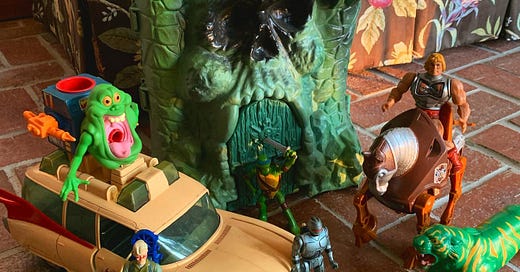



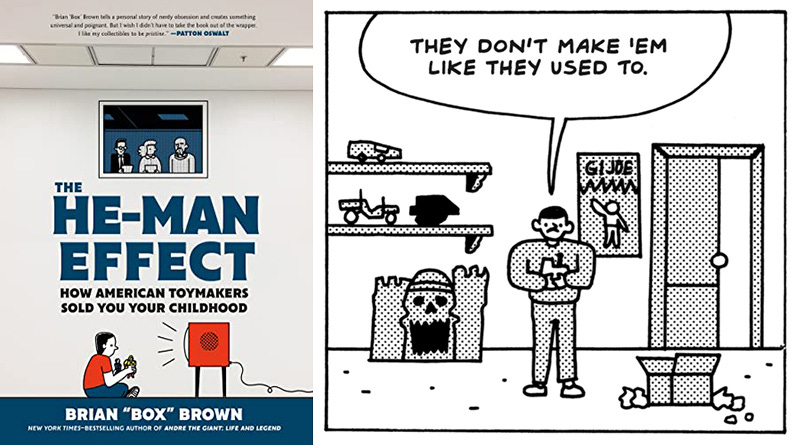
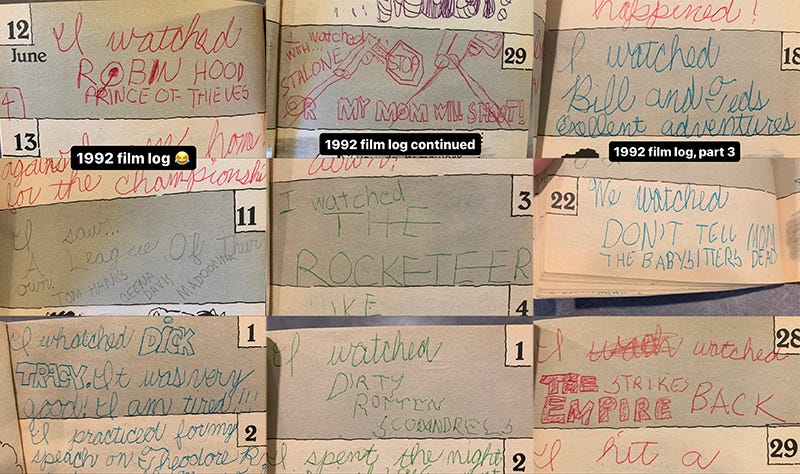
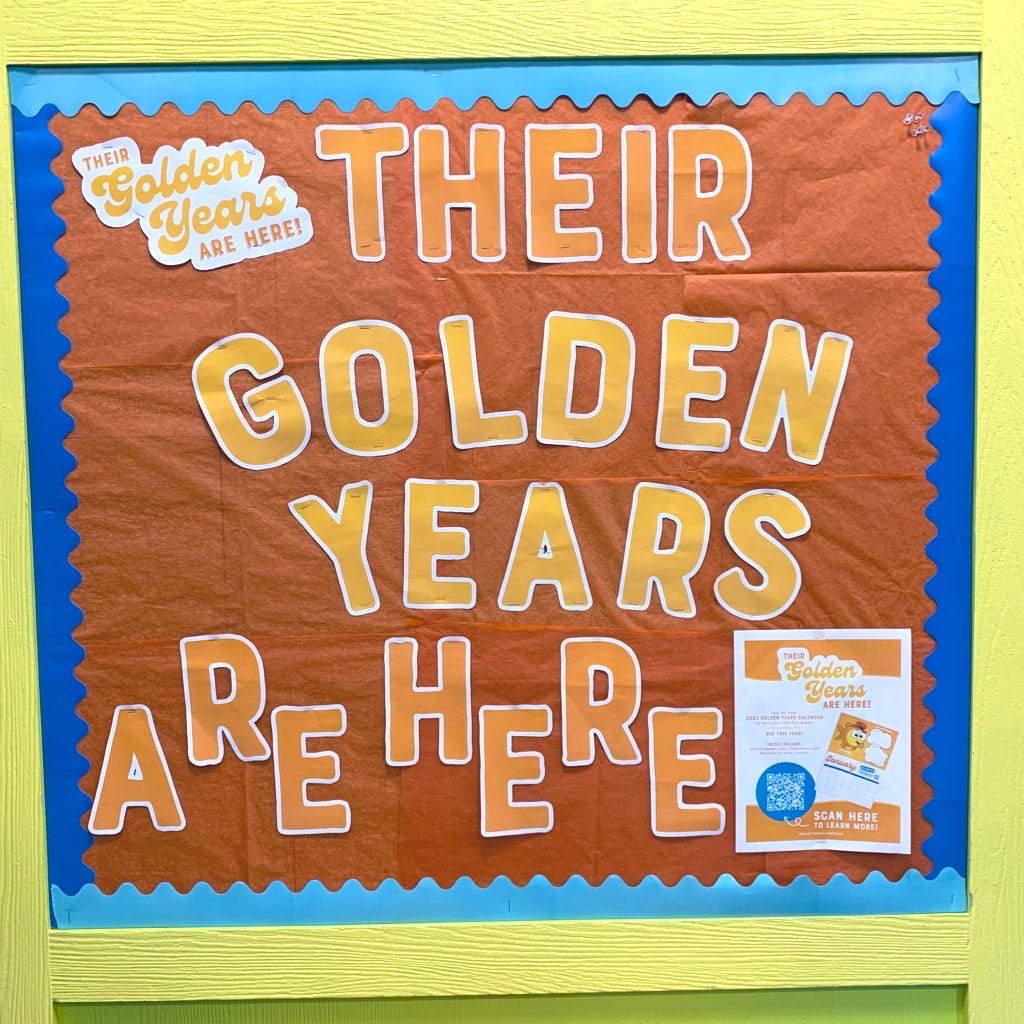
Thank you for this post. I've never thought too much about nostalgia before. As I considered it this morning, I realized that my mom was a big part of nearly every memory. She was always rooting for me and made me feel like my silly interests and ideas were amazing. I miss having that in my life.
So, I have realized that I want to be that person for my son and his girlfriend. I want to be purposeful about rooting for them in their endeavors. Perhaps they will have this kind of nostalgia one day as well.
Thank you for the nudge.
I look back fondly to a time when I was less nostalgic.
However, I do sometimes use it as a tool. I'm a stand-up, and if I'm on my way to a show and sort of "not feeling it", I will listen to songs that were popular in the late 80s, early 90s, when I was just starting out as a comic, to a time when doing shows was all I wanted in the world...and often it flips a switch and I feel myself firing back up and recapturing that desire.